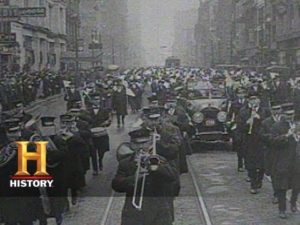
Today is Veterans Day and I want to give a big thank you to all the men and women who have served or currently serving for the sacrifices you have given your country.
But our gratitude to our veterans should not be celebrated on just one day of the year, it should be shown throughout the year. They don’t just serve for one day and say they did their job. So we as citizens should remember them and the job they do each and every day.
When veterans from all different branches of the military come back from their service, many of them have to face many different challenges. Many have trouble assimilating back into a “normal” society because they’ve been in such adverse situations for so long that that has become their new normal.

Many of our veterans when coming back are homeless and don’t have some of the skills necessary to apply for good-paying jobs. Homelessness is a huge problem facing veterans.
Many have PTSD, or post-traumatic stress disorder, traumatic brain injury, or the loss of a limb. All these are considered disabilities and major disabilities. Some of the disabilities are physical and readily visible, but there are many that are invisible. These include depression, PTSD, traumatic brain injury and the number one invisible disability among veterans is hearing related injuries. These include hearing loss and tinnitus. This is due to the noise exposure our troops are exposed to.
The Department of Veterans Affairs reports that 60 percent of veterans returning from Afghanistan and Iraq suffer permanent hearing loss or tinnitus. And it’s the also the fastest growing of all post-war disabilities, and more than doubling over the past decade. And it also the most costly in terms of productivity. With the loss of your hearing, you are more likely to lose your job, suffer from depression and stress and also suffer societal anxiety. It can be treated, but there is no cure.
We as a society need to address this issue not just among our veterans but across our whole population. Individuals with hearing loss face many challenges, not the least of which is accessibility to any audio-based content. Imagine a world where everything is silent, and you can no longer enjoy the small pleasures of life, listening to children laughing, birds singing, the sound of rain falling on the ground.
There is so much information on the internet and it’s all audio-based. If you provide any content that has audio, consider how your message is getting across to individuals that cannot hear. That could be a podcast, a radio program, online videos, webinars and the list is endless. Consider getting your content quality captioned so they can participate and enjoy it. So many people have misconceptions about what those with hearing loss enjoy, such as music, concerts, radio programs that we don’t think they’re just like you and I and want to enjoy the same things we do.
This is how you can help our veterans and others with hearing loss. Our motto is captioning the internet. Help CCTubes help them. CCTubes will donate 10 percent of all its proceeds to hearing loss organizations. And we will also donate 100,000 pairs of hearing aids to those in need. Consider purchasing a monthly membership to help others. And if you’re a business, please consider making your content accessible to all by adding captions.






